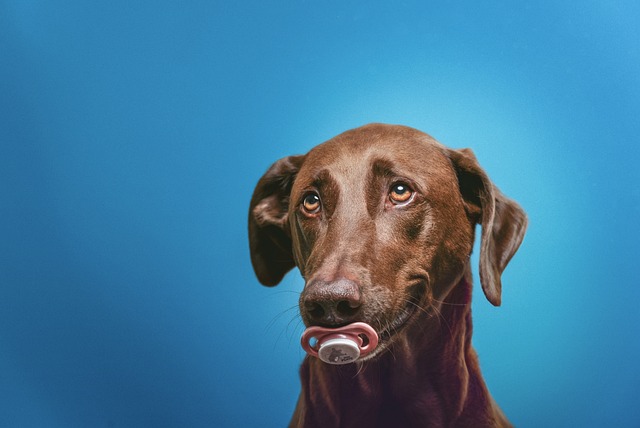
How can I tell if my dog's heatstroke is serious
Let’s be real: It’s a sticky August morning in Los Angeles, and you took your 2-year-old Golden Retriever, Max, for a walk a little later than usual
Picture returning home to find your once-well-behaved Lab has chewed through your favorite sneakers—shock turns to frustration. Sudden destructive behavior isn’t random; let’s uncover the hidden triggers with veterinary insights and real pet parent stories.
Medical issues often lie at the root. My neighbor’s Beagle started destroying cushions overnight—turns out he had a tooth abscess. "Pain drives destruction," my vet says. Dogs hide discomfort, but chewing signals distress. A dental cleaning ended his behavior.
Anxiety from routine changes sparks acting out. When I started working from home, my Aussie mix panicked if I left the room—gnawing my yoga mat became his coping mechanism. Gradual desensitization (short absences + treats) rebuilt his confidence.
Boredom fuels destruction in active breeds. My friend’s Border Collie, stuck inside during winter, chewed through a couch. "High-energy dogs need mental stimulation," her trainer said. Puzzle toys and scent games redirected his energy.
Separation anxiety manifests in destruction. My rescue mutt shredded curtains when alone—vomiting and panting accompanied the mess. A vet-prescribed pheromone diffuser and crate training eased her panic.

Environmental changes stress dogs. New furniture, a baby, or even a different air freshener can trigger destruction. My Lab chewed more after we installed a noisy air conditioner—moving his bed to a quiet room helped.
Cognitive decline in seniors causes confusion. My 12-year-old Retriever started scratching walls at night, disoriented by doggy dementia. A vet’s medication and consistent routine reduced his anxiety-driven behavior.
Teething puppies explore with their mouths. My neighbor’s 4-month-old Shepherd gnawed chair legs—providing durable chew toys (like antlers) saved her furniture. "Puppies need appropriate outlets," her trainer advised.
Reinforcement history matters. Did you accidentally reward destruction? My friend laughed when her Pug shredded a pillow—now the dog repeats it for attention. Redirecting to approved toys (and ignoring bad behavior) fixed the issue.
Allergies or digestive issues cause restlessness. A client’s Bulldog destroyed his bed due to food allergies. "Itchy skin leads to destructive pacing," the vet explained. An allergy diet ended the behavior.
Improper socialization shows up later. My rescue Shiba Inu, lacking early exposure, destroyed doors when strangers visited. Gradual introductions (with treats) and a "safe space" crate calmed his fear.
Local animal welfare laws emphasize care. In the EU, allowing destructive behavior from untreated anxiety is illegal; in the US, some states consider it neglect. Addressing the root cause isn’t just kind—it’s legal.
Training techniques prevent future issues. Teaching "Leave it" and providing daily exercise (30 minutes for most breeds) reduces destructive urges. My once-destructive Aussie now asks for a puzzle toy when bored.
Sudden destruction is your dog’s way of saying "help." For my fur family, each chewed shoe was a clue to underlying needs. With patience, veterinary care, and environmental tweaks, you can turn destructive habits into positive behaviors—strengthening your bond in the process.

Let’s be real: It’s a sticky August morning in Los Angeles, and you took your 2-year-old Golden Retriever, Max, for a walk a little later than usual

You're enjoying a summer afternoon at the park when you notice your dog has stopped panting and appears disoriented - their gums are bright red

Let’s paint the picture: You’re in your Denver apartment, watching your 4-year-old Boston Terrier, Ruby, plop down mid-play session with her favorite toy

Many dog owners notice their pets nails seem shorter after regular walks,but how much does this daily activity actually help?The answer depends on where you walk—concrete sidewalks or asphalt streets gently file nails as a dog's paws hit the ground

Most dog owners notice their pup scooting across the carpet at some point, but few connect it to impacted anal glands. These small sacs near a dog’s rectum secrete a scent for marking territory

Most vets agree that regular dog teeth cleaning is key to avoiding painful dental issues later. For healthy adult dogs, a professional cleaning at the vet’s office every 12 to 18 months usually works well.